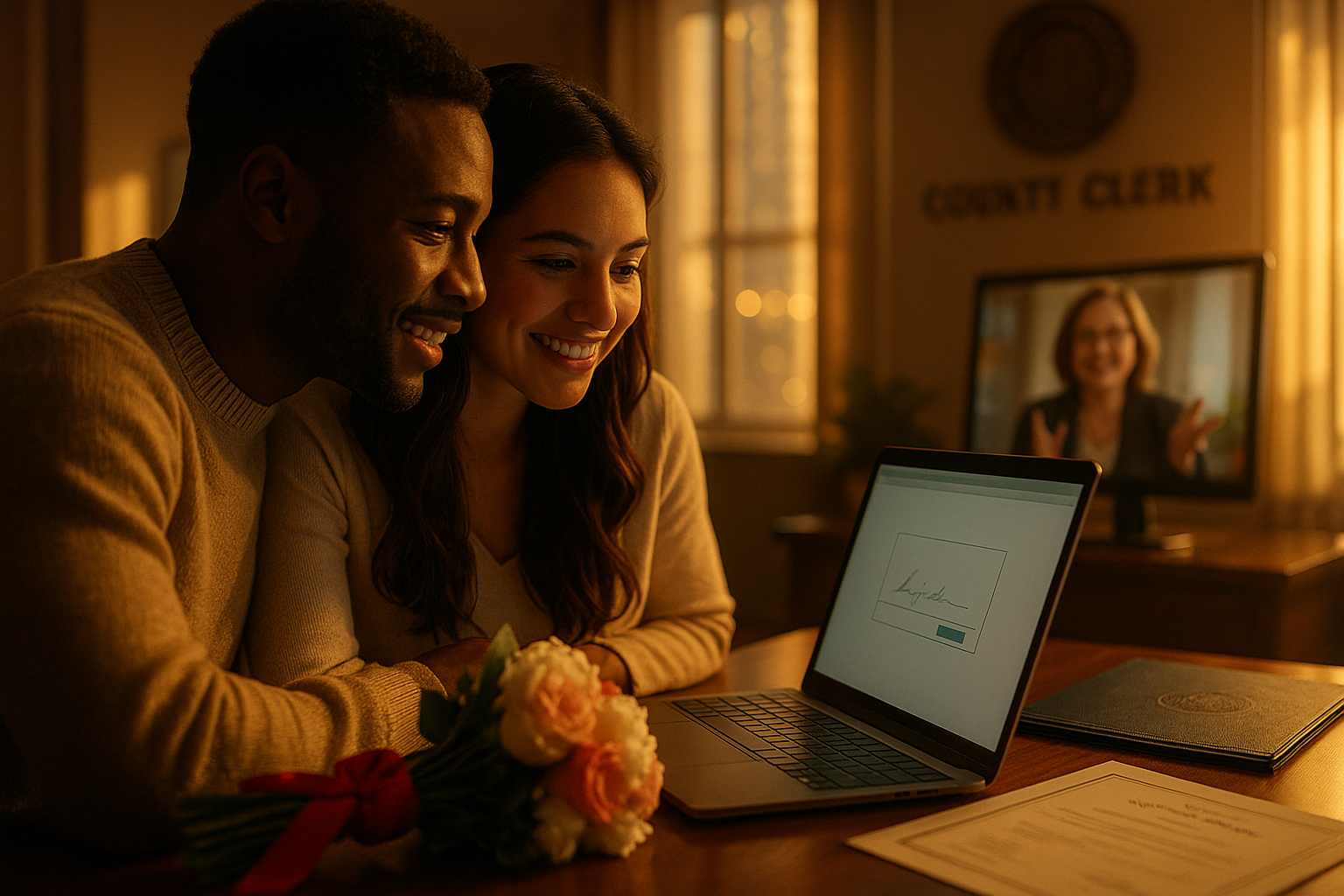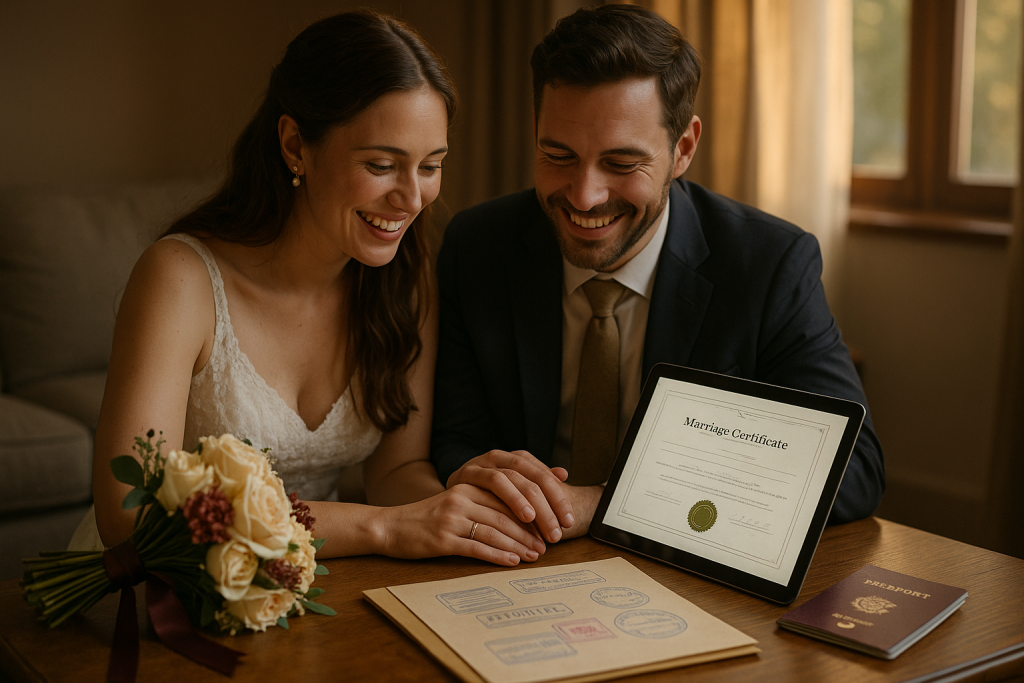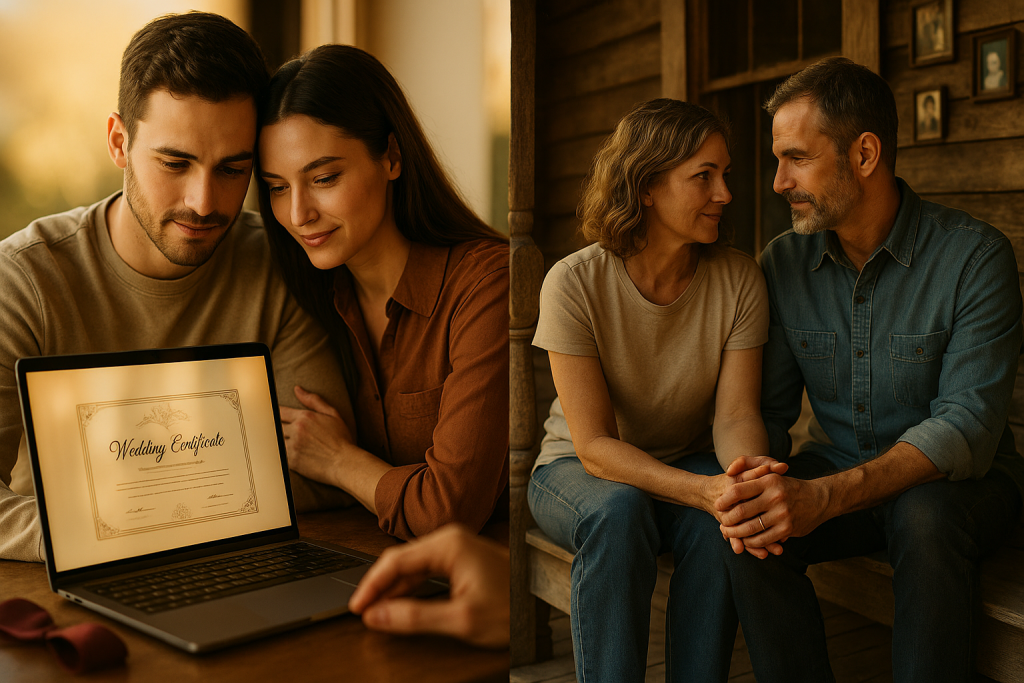In today’s digital age, the traditional process of obtaining a marriage license has evolved significantly. Many counties across the United States now offer virtual marriage services, allowing couples to apply for and receive marriage licenses online. This shift not only streamlines the process but also accommodates couples who may face challenges attending in-person appointments. Let’s delve into how counties handle virtual marriage licenses and what you need to know to navigate this modern approach.
Understanding Virtual Marriage Licenses
A virtual marriage license is a legally recognized document obtained through online platforms, eliminating the need for couples to visit the county clerk’s office physically. This process typically involves online applications, virtual meetings for identity verification, and digital issuance of the license.
State-Specific Virtual Marriage License Processes
Different states have adopted unique procedures for virtual marriage licenses. Here are a few examples:
California
In California, counties like San Mateo and Alameda have implemented virtual marriage services. Couples can apply online, participate in a video conference for identity verification, and receive their marriage license digitally. Both applicants must be physically located within California during the video conference. For detailed information, refer to the San Mateo County Clerk’s Office guidelines. ([smcacre.gov](https://smcacre.gov/county-clerk-recorder/online-marriage-licenses-virtual-marriage-ceremonies?utm_source=openai))
Texas
Texas has embraced remote marriage licenses, with counties like Tarrant offering these services. Couples can complete the application online and attend a virtual meeting for verification. This initiative is particularly beneficial for military personnel and those unable to visit the clerk’s office in person. More details are available on the Tarrant County Clerk’s website. ([tarrantcountytx.gov](https://www.tarrantcountytx.gov/en/news/2022/remote-marriage-licenses.html?utm_source=openai))
Indiana
Indiana’s Marriage License E-File System allows couples to apply for marriage licenses online. The system captures all necessary information electronically, and couples can sign the application during a virtual meeting. This process ensures efficiency and accuracy in record-keeping. Learn more about Indiana’s system here. ([in.gov](https://www.in.gov/judiciary/admin/2649.htm?utm_source=openai))
General Steps to Obtain a Virtual Marriage License
While procedures may vary by county, the general steps include:
- Online Application: Complete the marriage license application on the county’s official website.
- Document Submission: Upload required identification documents, such as government-issued IDs and, if applicable, proof of dissolution of previous marriages.
- Virtual Appointment: Schedule and attend a video conference with the county clerk’s office for identity verification and to finalize the application.
- Payment: Pay the applicable fees online through the county’s payment portal.
- License Issuance: Receive the marriage license digitally, which is valid for a specified period, typically 60 to 90 days.
Benefits of Virtual Marriage Licenses
- Convenience: Couples can complete the process from the comfort of their homes.
- Accessibility: Ideal for couples residing in different locations or those with mobility challenges.
- Efficiency: Reduces the time and resources spent on in-person visits.
Considerations and Requirements
It’s essential to note that requirements can vary by county and state. Common considerations include:
- Residency: Some counties may require at least one applicant to be a resident.
- Technology: Reliable internet connection and access to video conferencing tools are necessary.
- Identification: Valid government-issued photo IDs are typically required.
FAQs About Virtual Marriage Licenses
1. Are virtual marriage licenses legally recognized?
Yes, virtual marriage licenses are legally recognized, provided they are obtained through authorized county processes.
2. Can we have a virtual wedding ceremony?
Many counties offer virtual wedding ceremonies conducted via video conferencing platforms. Check with your local county clerk’s office for availability.
3. How long does the virtual marriage license process take?
The timeline varies by county but generally ranges from a few days to a couple of weeks, depending on appointment availability and processing times.
4. Do both applicants need to be present during the virtual appointment?
Yes, both applicants must typically be present during the virtual appointment for identity verification.
5. Is there an additional fee for virtual marriage licenses?
Fees vary by county. Some may charge additional fees for virtual services, while others may not. It’s best to consult the specific county’s fee schedule.
Conclusion
Virtual marriage licenses offer a modern, efficient, and accessible way for couples to legalize their union. By understanding the specific requirements and processes of your county, you can navigate this option seamlessly. For personalized assistance and to explore how we can help facilitate your virtual marriage, feel free to contact us today.




